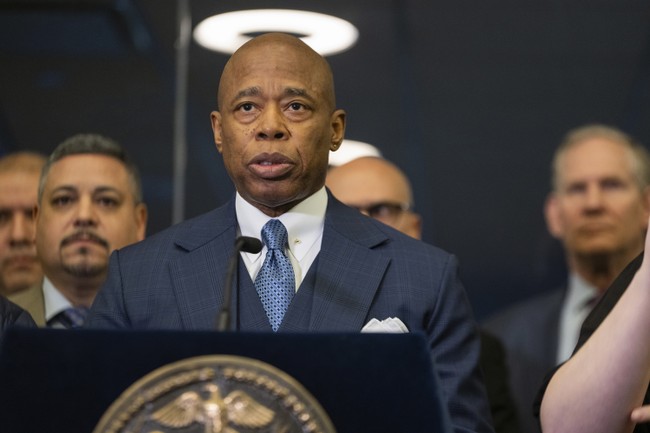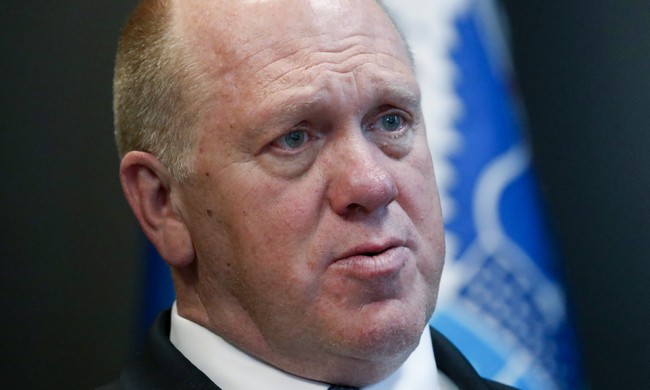Drama Unfolds in NYC Mayor's Legal Battle
Explore the intricate saga as charges are dropped against NYC Mayor Eric Adams, revealing layers of political maneuvering and implications for his governance.
Published February 12, 2025 - 00:02am

Image recovered from townhall.com
The recent decision by the United States Department of Justice to dismiss federal charges against New York City Mayor Eric Adams has sent ripples through both political and legal landscapes. The charges, initially levied during the Biden administration, included serious accusations such as bribery, campaign finance violations, and conspiracy. Allegations centered around Adams allegedly accepting bribes and illegal campaign contributions from foreign nationals during his tenure as Brooklyn Borough President and continuing into his mayoral role. However, the charges have now been dismissed following an official directive from the Justice Department, led by acting Deputy Attorney General Emil Bove, without prejudice.
This legal maneuver means that while the charges are currently dropped, they can be refiled in the future. Mayor Adams has consistently maintained his innocence, suggesting that the charges were politically motivated, a stance he has reiterated since the case's inception. The case's dismissal arrives amid a backdrop of significant political tension, particularly between Adams and the Biden administration. Adams, who initially supported immigrant rights and sanctuary city laws, altered his stance amidst mounting pressure and criticism over handling the border crisis, which allegedly strained relationships with federal officials.
Interestingly, the move to drop charges has intersected with the complex political dance involving former President Donald Trump. Reports indicate that Trump showed solidarity with Adams, drawing parallels between their shared experiences of facing legal scrutiny. Trump's Justice Department decision to drop the charges is seen in some quarters as reflecting his broader political strategies.
Critics of the dismissal, including several political opponents of Mayor Adams, have voiced their discontent, arguing that the decision undermines accountability. They question whether the ongoing political duties of a mayor should weigh into the legal considerations of such serious charges. Concerns have also been raised about Adams's ability to govern effectively amidst potential legal vulnerabilities, especially given Trump's influence. In response, Adams and his supporters argue that the dismissal allows him to focus on pressing issues affecting New York City, such as crime reduction and managing immigration challenges.
The dismissal also sheds light on broader themes of political influence within the DOJ. It rekindles discussions about the impartiality of legal systems when interwoven with political dynamics. The decision came after considerable media speculation about the intentions and future actions of the Trump administration, further illustrating the politicization that legal cases involving high-profile figures can provoke.
In the weeks following, New York City's political atmosphere remains charged, with Mayor Adams continuing his campaign for reelection. His critics argue that his engagements with the Trump administration have only served political expediency rather than addressing the substantive issues facing New Yorkers. Yet, supporters praise Adams's resilience and focus on city governance amid distraction noises of political adversaries and legal challenges.
Mayor Adams's legal conclusions have sparked a wider discourse questioning the intersection of city governance with national politics. As the situation evolves, how the federal and state authorities proceed will set significant precedents affecting the perceived independence of judicial processes from political influence. The outcomes also await the public's judgment, particularly as Adams seeks to consolidate his political position with an eye on future electoral contests.
Meanwhile, potential implications of this event on future political campaigns, legal strategies, and public opinion all rest on the balance, as stakeholders across the spectrum react to a development that will undoubtedly shape the political narrative in New York and beyond.






